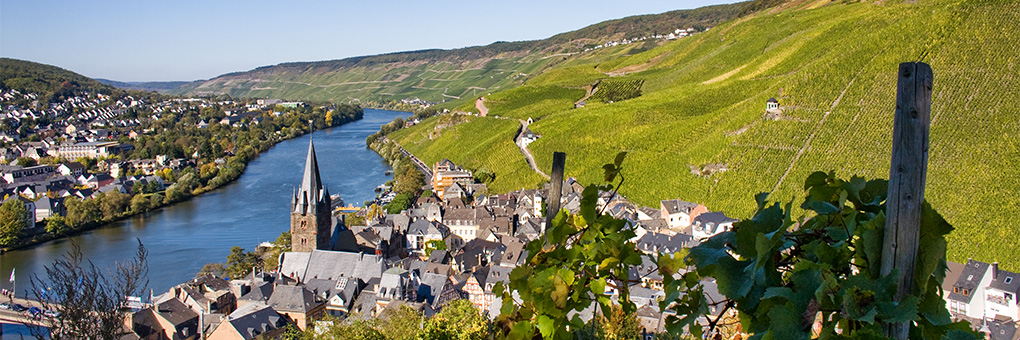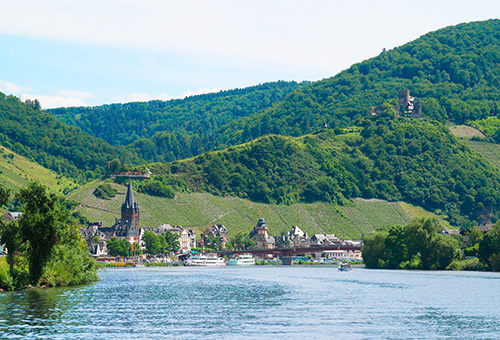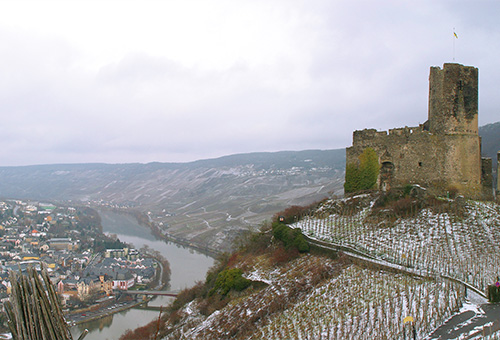
Bernkastel Badstube
Smallest "Großlage" on the Mosel
Its name probably dates back to the Middle Ages, when hot springs in Bernkastel invited visitors to bathe and relax: With a few less than 50 hectares, Badstube is the smallest big site on the Mosel. Facing south-southwest, it convinces above all with its consistent qualities - a robust site for robust wines.
The wines of the Bernkasteler Badstube come from dark clay slate soils with a lot of fine-grained soil and soils made up of decomposed plants, also called humus. The oily slate makes the wines juicy and voluminous. The soil can store water well and this brings both elegance and freshness. Fruity, lively and delicately melting in the mouth - this is how the wines from the Bernkasteler Badstube convince.


Profile
| Total area | Approx. 50 hectares, of which 1.1 hectares belong to Bischöfliche Weingüter Trier |
| Height | 80 meters above the sea level |
| Orientation | West to southwest |
| Inclination | 30 – 40 % |
| Soils | Typical here are the medium-textured clay-shale weathered soils with a lot of fine soil and made up of decomposed plants as well as varying proportions of clay |
| Particularities | The name "Badstube", “bathhouse” in English, probably goes back to hot springs from the Middle Ages, which were used as a bathhouse. The Badstube vineyard is part of the Bernkastel area and is one of the few German vineyards that does not extend over several municipalities |
| Type of wine | The wines from this site are very lively, fresh with a ripe and stable acidity. They are considered extraordinarily long-lasting |
